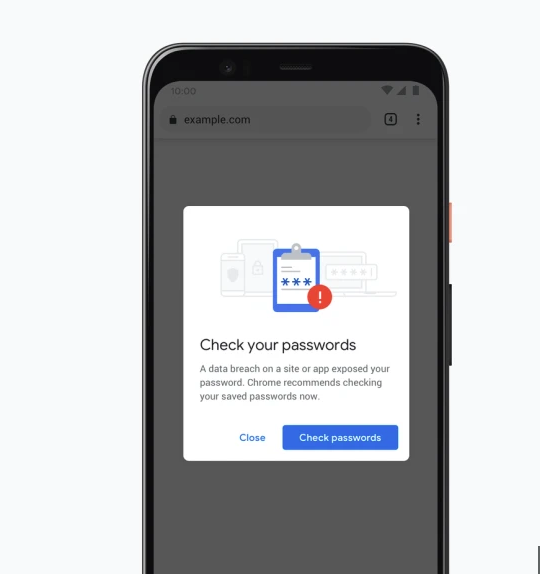Google Chrome trick reveals if your passwords are HACKED

Google Chrome trick reveals if your passwords are HACKED
Google Chrome – Earlier this year, Google launched a Password Checkup add-on for the Google Chrome web browser. Now Google Chrome will be able to do this without requiring you to install an extension – on both desktop and mobile.
“Chrome has safety protections built-in, and now we’re expanding those protections further,” Google’s AbdelKarim Mardini explained.
“When you type your credentials into a website, Chrome will now warn you if your username and password have been compromised in a data breach on some site or app.
“It will suggest that you change them everywhere they were used.”
You can find the new feature in Chrome Settings, under Sync and Google Services.
Just like the extension, Google’s password-scanning feature displays a warning whenever you sign in to a website using “one of over 4billion usernames and passwords” that have been hacked.
Google does this by cross-referencing your log-in details for different sites with a huge list of hacked log-ins.
“Since our launch, over 650,000 people have participated in our early experiment,” Google’s Jennifer Pullman explained earlier this year.
“In the first month alone, we scanned 21million usernames and passwords and flagged over 316,000 as unsafe – 1.5% of sign-ins scanned by the extension.”
Read Also – Innovate 1 Pay Features On The Front Cover Of The Financial Time Read more: http://www.digitaljournal.com/pr/4414451#ixzz67nZR6dD4
There’s obviously a huge risk for anyone whose username and passwords from different sites have been hacked.
It’s important to immediately change your log-in details to stay safe.
But even passwords uploaded online without associated usernames can put you at risk.
If you use a very simple password, it’s likely someone else does too – and they may have been hacked themselves.
Read Also – ASAHCA 2013 Lancaster Hotel (London Hyde Park) Mahmood Ahmadu supports Angels for Africa
Hackers buy huge lists of these compromised passwords from lots of different sites because people often re-use them.
So hackers are much more likely to gain access to an account by forcing a long list of “known” hacked passwords than trying random letters or numbers.
“Hijackers routinely attempt to sign in to sites across the web with every credential exposed by a third-party breach,” said Pullman.
“If you use strong, unique passwords for all your accounts, this risk disappears.”
Source – https://www.thesun.co.uk/tech/





